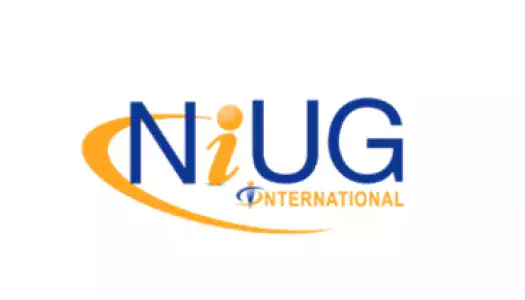Conferences consume a great deal of your association’s time and financial resources. Should they take such a primary place in your association’s educational offerings?
The truth is: conferences are not the most effective method of transferring knowledge. Attendees aren’t likely to retain the information they take in during those few days packed full of sessions. They end up getting overwhelmed with new information and falling victim to the forgetting curve—which means they will forget 70 percent of what they ‘learn’ within 24 hours.
In most associations, only a small percentage of members attend conferences. The rest can’t afford to go, can’t take time away from work, or don’t see the appeal.
To resolve these issues, try a different approach to conferences: make a plan to continue the conference learning experience. Help attendees solidify and strengthen their conference learning while at the same time introducing them to your online learning programs. This approach will also give those who couldn’t attend a taste of what they missed while exposing them to your online programs too.
Why Continue the Conference Learning Experience
Differentiate your association’s conferences from competing events by developing a post-conference learning plan. Attendees will not only enjoy networking and education during the conference but will reap additional value by continuing the conference learning experience when they get home.
Adult learning expert Jeff Hurt said: “The real work [of learning] actually begins when the education session ends. The real work is the effort the learner uses to transfer and apply the new knowledge and skills so that it improves their performance…The most effective learning programs move the finish line to several weeks or even months after the education session.”
Make a plan to help attendees move that finish line. By continuing the conference learning experience, you’ll help them solidify knowledge. They’ll have additional opportunities to connect with other attendees while being exposed to your LMS and online learning programs.
Set Up Post-Conference Learning During the Event
You can do a few things during the conference to not only prepare attendees for post-conference learning but to also extend the conference experience to those who couldn’t be there.
Reach the audience beyond the meeting room.
PCMA says the three most important reasons people choose to attend their conferences online instead of in person are budget (48 percent), schedule conflicts (23 percent) and lack of time to travel (13 percent). You can attract the attention and interest of larger audiences with live-streamed events.
This hybrid approach does not ‘cannibalize’ in-person attendance. “Cannibalization is people’s biggest fear of the hybrid space,” says Jennifer Kush, PCMA’s director of experience marketing. “It doesn’t happen. Instead, you are getting an engaged, committed audience coming to you.”
During the live-stream, a facilitator can bring the attention of this captive audience to related online learning options. Hybrid and virtual events also help to build interest in future face-to-face conferences. PCMA’s in-person registration numbers have significantly increased since they’ve offered content to virtual attendees. “Not only does our virtual audience grow from year to year, having hybrid access has motivated more people to come to the physical version of the same event the next year,” said Carolyn Clark, PCMA’s vice president of marketing and communications.
Give attendees a call to action.
Ask speakers to think of their sessions as the beginning, not the end, of the learning conversation. Instruct speakers to end their session with a “call to action” or “next step” for attendees. They could ask attendees to:
- Join an online discussion group focused on the session topic or track.
- Complete an online form where they commit to taking the next step. Speakers follow up after a few weeks to provide guidance and remind attendees of their commitment.
- Form an accountability group with one or more fellow attendees to help each other follow through on their next steps.
- Take a ‘lunch and learn’ facilitator’s guide back to work so they can share their knowledge and ideas for action with colleagues.
These steps do involve more work for speakers. Speakers either must be motivated to participate by marketing or “giving back” reasons, or they must be compensated for the additional time and effort.
Inspire attendees with a challenge.
During the closing general session, announce a learning challenge. Give attendees several days upon their return to get their lives back in order and then start an online learning challenge that picks up where the conference left off. You could center it around a new approach to a thorny hot topic or the first steps to developing a new habit.
Continue the Conference Learning Experience
Host the post-conference learning experience on your association’s learning management system (LMS) so you can take advantage of its tools and introduce attendees to other learning programs.
Highlight conference content.
Recorded sessions can become part of a digital badge or online course curriculum. Or, include them in a course syllabus as supplementary resources. Consider offering continuing education credit to those who view these sessions online.
Use your LMS to regulate access for different users to conference materials. For example, let conference attendees and members access them for free, but require non-members to pay a fee.
Replay popular sessions as webinars. During the webinar, have a facilitator guide participants through interactive activities so the learning becomes stickier.
Feature popular conference content on your blog. Interview the speaker and/or attendees and provide links to related association resources.
See which sessions got the most buzz on Twitter, and curate a collection of the most informative, pithy tweets.
Besides serving as educational resources, these tactics also help market your upcoming conferences.
Send a post-conference newsletter to attendees.
For the first few weeks after a conference, you have a newlywed-type relationship with attendees. Take advantage of their focused attention by providing additional educational resources. Send them a newsletter with:
- Links to session handouts, slides, and recordings.
- Tips on following up with new and renewed connections.
- Advice on how to use what they’ve learned at the conference to be a good resource in their professional network.
- Guidance on applying what they’ve learned.
Remind them of the ways they can continue their conference learning experience: online discussion groups, related online learning programs, and other services you’re offering as part of the post-conference learning plan.
Continue the conversation.
For popular sessions, create online discussion groups in your LMS where attendees and speakers can continue the conversation, share resources, and make recommendations about related online learning programs.
Start an online book club. Select books written by this year’s and next year’s speakers. Follow the format of popular MOOCs:
- Share a discussion guide.
- Live-stream panel discussions.
- Invite audience participation via phone, web-conferencing chat, and social media.
- Provide suggestions for further reading and related online learning programs.
Offer coaching services.
Offer professional coaching sessions to hold attendees accountable and help them apply what they’ve learned. Give members a discounted rate and make sure your association gets a commission or affiliate revenue.
Send reminders.
Use your LMS to send automated notifications to conference participants who committed to take next steps or opted in to other accountability programs.
Share stories.
Ask attendees if they’ve done anything new at work as a result of their conference attendance. Share those success stories on your blog or in your newsletter. Add their testimonials to your conference website and other marketing campaigns.
Plan for Next Year’s Post-Conference Learning
The annual conference is only one piece of a year-round educational strategy, but it provides an ideal opportunity for online learning program participants to meet face-to-face. Consider hosting discussions and receptions for different alumni and student groups and their instructors.
Begin next year’s conference experience in your LMS. Offer a flipped learning experience in conjunction with some of your conference workshops and sessions. Create an online program for the ‘flipped’ session where participants do the required pre-work: read articles, watch videos, and/or participate in online community discussions. Their educational experience continues at the conference when they meet with their instructor and fellow participants for the in-person session.
Think about how you could involve conference sponsors and/or exhibitors in your post-conference learning plan. How could they contribute their specific talents? Could they provide a year-round sponsorship instead of an event-based sponsorship?
Conference attendees are a built-in audience who are primed to deepen their knowledge. Pick up on their post-event attention and momentum, and continue their conference learning experience on your LMS.








